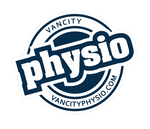Concussions, often referred to as mild traumatic brain injuries (mTBI), are common injuries that can occur due to a blow to the head or violent shaking of the head and body. While concussions are generally considered mild, they can have significant short-term and long-term effects on physical, cognitive, and emotional well-being. Physiotherapy plays a crucial role in the comprehensive management of concussions, aiding in the recovery process and minimizing long-term complications.
Goals of Physiotherapy in Concussion Management
Symptom Management: Physiotherapists focus on alleviating symptoms such as headaches, dizziness, neck pain, balance issues, and visual disturbances through specialized exercises and techniques.
Restoring Physical Function: Physiotherapy aims to restore physical function by addressing impairments in balance, coordination, strength, and endurance that may arise following a concussion.
Return to Activity: Physiotherapists guide individuals through a gradual and structured return-to-activity protocol, ensuring a safe transition back to work, school, sports, and daily activities.
Preventing Complications: By addressing risk factors and promoting healthy movement patterns, physiotherapy helps prevent secondary complications such as prolonged disability, chronic pain, and post-concussion syndrome.
Components of Concussion Treatment Physiotherapy
Assessment and Diagnosis: Physiotherapists conduct a comprehensive assessment to evaluate the individual's symptoms, functional limitations, and specific impairments related to the concussion. This assessment may include tests of balance, coordination, strength, vision, and cognitive function.
Education and Counseling: Physiotherapists provide education about concussions, symptom management strategies, and the importance of rest and gradual return to activity. They also offer counseling and support to address any concerns or fears related to the injury.
Symptom-Specific Rehabilitation: Physiotherapy interventions are tailored to address the individual's specific symptoms and impairments. This may include vestibular rehabilitation for dizziness and balance problems, cervical spine rehabilitation for neck pain and headaches, and visual rehabilitation for visual disturbances.
Manual Therapy: Hands-on techniques such as manual therapy and soft tissue mobilization may be used to address muscle tension, joint stiffness, and restricted movement patterns that contribute to symptoms.
Exercise Prescription: Physiotherapists prescribe customized exercise programs to improve strength, endurance, flexibility, and neuromuscular control. These exercises may include aerobic conditioning, strength training, proprioceptive training, and balance exercises.
Return-to-Activity Protocol: Physiotherapists collaborate with other healthcare professionals, such as physicians and neuropsychologists, to develop and implement a structured return-to-activity protocol based on individual progress and symptom resolution.
Concussion treatment physiotherapy is a vital component of the multidisciplinary approach to managing concussions. By addressing symptoms, restoring physical function, and promoting safe return to activity, physiotherapists play a key role in helping individuals recover from concussions and minimize long-term complications. Collaborative care involving physiotherapy, medicine, and other healthcare disciplines is essential for optimizing outcomes and ensuring a smooth transition back to full health and activity.
Come see one of our Concussion Physiotherapists Today. Book Now!


